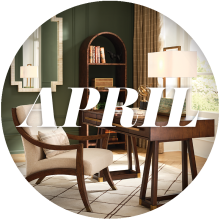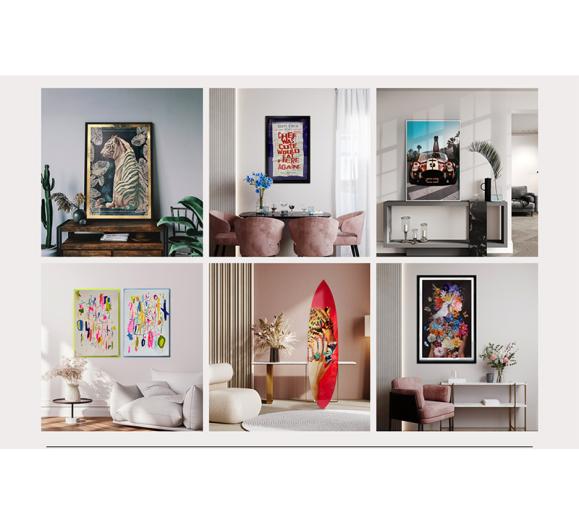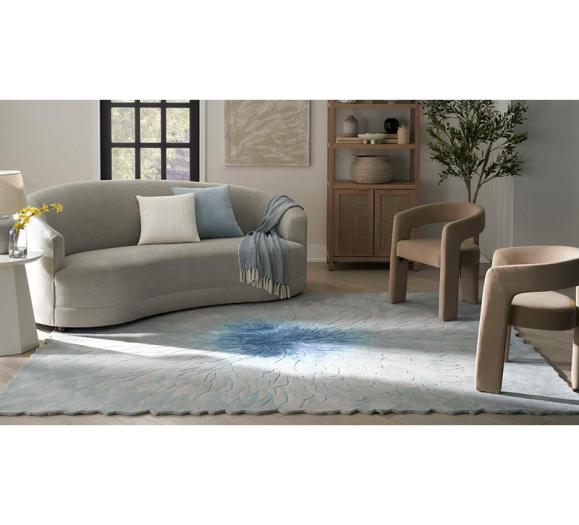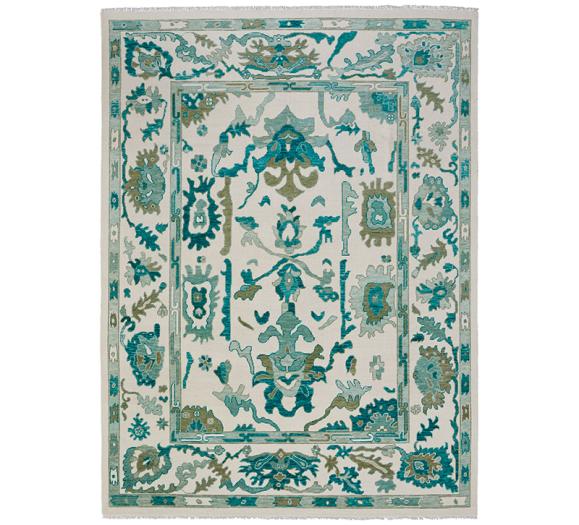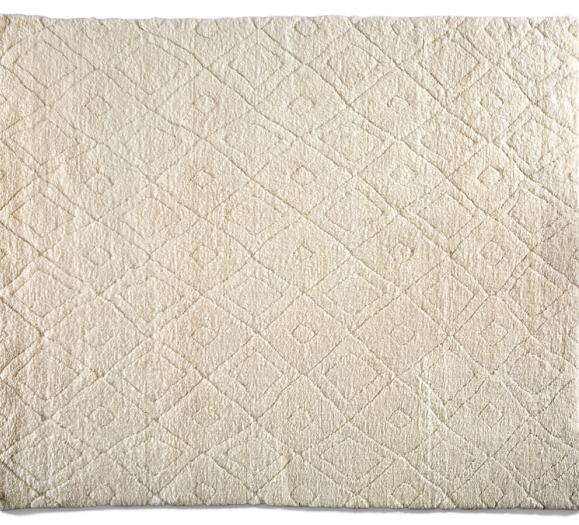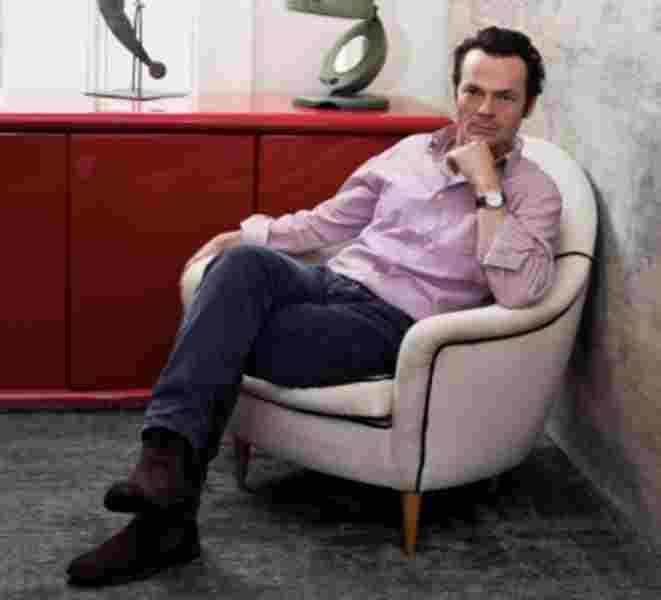
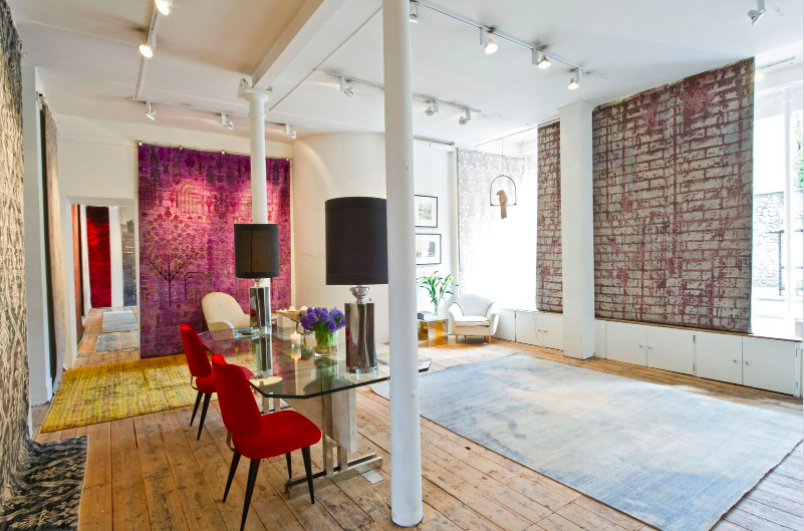
What do members of the British Royal family, U2 and Rolling Stones, and the Obamas have in common? A Luke Irwin rug.
Luke Irwin established his rug company in 2003, producing custom-made hand-knotted rugs that were ethically sourced from India and Nepal. Irwin finds inspiration rooted in the history of his rugs, and each one is made using traditional methods in foothills of the Himalayas overlooking the Kathmandu Valley in Nepal and in Jaipur, India. This year, his rug Cumulae Caractacus in his Mosaic collection, won the 2017 Wallpaper* Design Award for best rug design. In 2010, Irwin opened his London showroom, and now, he's making the big leap to the U.S. market.
Last month, Irwin announced Chicago showroom Oscar Isberian would begin carrying his rugs. In this Designer Q&A, We caught up with Irwin to find out more about this great opportunity and hear more about the inspiration behind his rugs.
What made you choose Oscar Isberian in Chicago as the showroom to display your new collection?
Oscar Isberian is the best there is, and I have always admired Oscar and Sarkis before we ever did this. We were friends before this launch and that always helps as I much prefer to be in partnership with people that I like. Oscar Isberian has an extraordinary combination of exceptional taste and profound integrity.
Walk us through the design process. How do you get inspired? Once you have an idea, how do you move it forward?
I like to do collections as it gives coherence and narrative to a collective. With this the most recent collection, I found the inspiration 18 inches below the soil at my home — namely a large Roman mosaic dating back to the 4th Century AD — but it was very important that apart from the Deverill design (which is a replica of the mosaic we discovered) that all the mosaic designs we did are relevant to the aesthetics of the 21st Century rather than the 4th Century.
I have a profound interest in history as well as aesthetics and I think the two are inextricably linked. My starting point for a collection can often be intellectual rather than aesthetic, and it will lead me into interesting (I hope) takes on the aesthetics.
Interior designers and showroom retailers often have to explain long lead times to customers, and some are apprehensive about explaining lead times to Millennials, who are used to two-day shipping from Amazon and other retailers. How do you explain long lead times to customers and ease customer concerns?
Well, let me turn this on it’s head for the Millenials and Amazon — would they expect Dan Brown to write a book in two days? Or Steven Spielberg to deliver a film in that timeframe?
They are buying finished works which cannot be altered or changed or customized in any way. If you order a 9 x 12 Mosaic rug from me, it will contain at least 120,000 individual knots all of which are done by hand. That doesn’t even include dyeing or carding or washing or finishing. This is a very labor-intensive skill and every single one made is made for the person who ordered it and to their specification. It would be the same if you go to a Savile Row tailor and order a bespoke suit — you will not leave with it that day. But, to paraphrase Guinness: "Good things come to those who wait."
As a business owner, you're constantly moving between production, marketing, sales and other departments. How do you keep yourself organized?
With great difficulty, but I am very, very lucky because I have a fantastic team who keeps me focussed, and they manage the minutiae so I can focus on the big picture.
You refer to solitude as a "great luxury" in your interview with Architectural Digest. What advice do you have for business owners struggling to make time for solitude/reflection?
It is very simple — make the time. Honestly, I believe the most important meeting you will have on any given day is the 10 or 20 minutes you have to yourself going for a walk or simply going for a coffee on your own — it will give you perspective.

